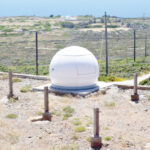
Widespread poor sanitation and unhygienic drinking water remain top environmental challenges Nigerians are grappling with.
The 2017 Multiple Indicator Cluster Survey (MICS) released by the National Bureau of Statistics (NBS) show that many Nigerians are exposed to life-threatening environment due to poor sanitation and drinking water.
The report showed that 42.1 per cent of households in Kano State do not use improved sources of drinking water and only 0.7 per cent of households using unimproved drinking water use an appropriate water treatment method.
The situation is no better in Lagos, Nigeria’s second most populous city after Kano going by official records, as only 8.9 per cent of household members in Lagos have an improved drinking water source located on premises, free of contamination and available when needed.
This is an indication that Nigeria has a long way to go if she hopes to meet the Goal Eight of the United Nations (UN) Sustainable Development Goals (SDGs) which targets to “Ensure availability and sustainable management of water and sanitation for all.”
Data sourced from UNICEF show that over 110 million lacked access to improved sanitation with open defecation put at 28.5 per cent.
Daily Trust monitored the sanitary condition of some urban clusters in the nation’s capital, Abuja and reports that the situation calls for urgent attention.
A visit to Wumba, a community in Apo district of the Abuja Municipal Area Council (AMAC) shows a lengthy heap of refuse oozing a disturbing stench welcoming visitors and residents to the community.
A resident of the community, George Uremi, said the heap had not been cleared for the past three years and now posed embarrassment to the residents in addition to the health risk.
Uremi said the poor sanitary condition of the community should be a cause of worry to both the residents and Abuja Environmental Protection Agency considering recent outbreak of Monkey Pox disease said to have been linked to poor hygiene.
Similarly, the city centre of Abuja accommodates many urban slums that have serious sanitation and portable water challenges.
A resident in Jabi, Musa Muhammad, decried the poor state of sanitation in Jabi area of the nation’s capital.
Muhammad expressed worry that heaps of waste gathered along walkways and drainages have been neglected for a very long time by relevant authorities, exposing residents to health dangers. Pointing at a heap of refuse in Daki Biu axis, he said, “This waste has been here for years. Only scavengers come to explore it. That’s why it is like this.”
Another resident of Daki Biu, Amaka Nwankwo, said portable water supply has been a problem.
“I have been here for three years now and have never seen water pumps here. The only thing that happens here is we buy water from water vendors,” she said.
She said buying the water is expensive even as it was difficult to ascertain the purity of the water and the source.
Another resident of Daki Biu, Abdullahi Kura, said that improper sanitation starts from personal hygiene.
Kura called on the government to regularly visit Daki Biu in Jabi to evacuate waste as well as provide pipe borne water for the residents.
UNICEF estimates that over the years, 70 million people, out of a population of 171 million, lacked access to safe drinking water.
The Fund reports that Nigeria has made substantive progress in mapping out strategies for water supply and sanitation service delivery, but faces major challenges in translating these strategies into action.
The report stated that Nigeria lack safe, private toilets and hand-washing facilities, noting that the impact of water, hygiene and sanitation falls disproportionately on women and girls, the main carriers of waters.
The report revealed that the economic impact of poor sanitation and hygiene cost the Nigerian economy the equivalent of almost 1.3 per cent of gross domestic product.
Conflict and natural disasters are also very paramount causes of unsafe environment which causes dangerous health risk to the human system.
A baseline data for the monitoring of the SDGs targets also released recently by the NBS showed that on the national level, Nigeria has been making slow improvement in the supply of safe water that Nigerians drink.
The NBS estimated the population using safely managed drinking water services as 58.5 per cent in 2011, 57.8 per cent in 2012, and 62.2 per cent in 2014.
As at 2015, it was estimated that 69.6 per cent of Nigerians had safe sources of drinking water, but the report did not include data for 2016 and 2017. However, the 2017 Multiple Indicator Cluster Report for Kano and Lagos show that the problem is still rife.
The levels of safely treated water have been low and the 2011 MICS puts it at 0.04 per cent in 2011 and 0.09 per cent in 2012. The volume safely treated water reduced considerably from 2013 to 2015.
WaterAid Nigeria reported that hygiene is not widely seen as a big health risk, making it a more difficult issue to address. 68 per cent of the population has no access to a toilet and it is these communities that face a higher risk of disease from poor hygiene standards.
They attribute improper sanitation to lack of awareness, education and a culture of hygienic living which makes Nigerian communities exposed to hazards and health risks.
An environmentalist, Sheriff Ibrahim, told the Daily Trust that public sanitation is usually carried out by the government via relevant agencies while personal hygiene, which includes washing of hands, keeping households utensils clean and so on, is important and encouraged to be carried out by all.
He explained that dirt, if not properly disposed, can cause breading space for flies, mosquitoes, rodents and rats, adding that in such dirty environments, mosquito can spread malaria while flies can spread cholera.
He called on government to regularly and efficiently dispose waste through environmental sanitation agencies.



